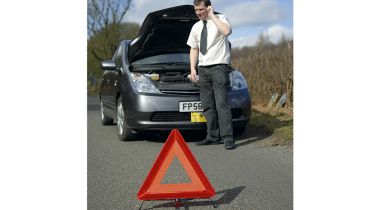Roadside assistance feature
Knowing that help is only a phone call away is reassuring if your car breaks down. But which recovery service is best? We assess 10...

Long gone are the days when you could perform an emergency roadside repair with a stick of chewing gum and a pair of tights. Break down in a modern vehicle, and chances are anything more serious than a puncture will require some professional help.
Being able to make a phone call and know that assistance is on its way is reassuring – but picking cover is no longer a simple case of choosing between the traditional big guns, the AA or RAC. In recent years, many more providers have entered the market – including supermarket giant Tesco – all of them offering drivers peace of mind for an annual premium.
It’s a hugely competitive market, and it can be a confusing process finding the right cover for you. Not only are there plenty of providers, but each offers a number of different levels of service. We’ve looked at 10 recovery companies, and to simplify your choice, we’ve only detailed cover that includes help at the roadside and at home.
Buying tips
Price is important when most drivers look for a breakdown service, but it shouldn’t be the sole factor. Work out what part of the cover is most important to you first, and then start looking.
You can usually pick between help only at the roadside and those which also come out if you can’t get going from home. But the top-of-the-range products often include a hire car if yours can’t be fixed straight away, overnight hotel accommodation and onward travel by plane or taxi.
It’s also worth asking if cover is for you, no matter what you’re driving, or for the car itself. The latter is handy if more than one of you drives the family motor, whereas the former is good if you have access to more than one vehicle. And ask about discounts for joint husband and wife policies or for adding a second car, as reductions can be substantial. Always check for cheap online offers, too.
One thing to keep an eye out for is cover that requires you to pay for repairs up front and then claim back the costs from the provider. This can sometimes mean a cheaper premium, but you’ll have to deal with paperwork after the event. The response times covered in our survey are those claimed by the individual services.






